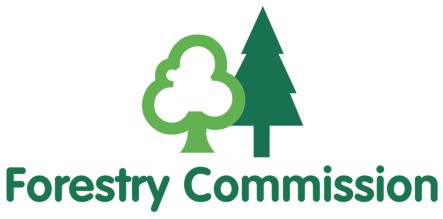Plant Health News - February 2025
Updated 13 February 2025
Scottish log exports to Ireland are stopped due to bark beetle risk
Conifer logs from Scotland’s west coast can no longer be exported to the Republic of Ireland (ROI) or to Northern Ireland (NI) due to concerns over the Ips cembrae bark beetle found in the area.
This follows a finding of Ips cembrae beetles in a trap at a port in Ireland last year, when all movement of conifer logs with bark from the Pest Free Area to ROI and NI was paused as a precautionary measure.
After a full analysis of surveillance data and trapping results, and advice from the GB Forest Research agency, Scottish Forestry say they cannot guarantee the Pest Free Area is free from Ips cembrae bark beetles. This means that phytosanitary certificates confirming the absence of Ips cembrae cannot be issued and exports of conifer logs to the island of Ireland are stopped.
More information is available on the Scottish Forestry website.
Plant heath legislation changes
1). Importing conifer wood from Italy or North America
Following a pest risk analysis and a consultation, new GB-wide measures came into force on 30 January 2025 through a change to plant health regulations. Heterobasidion irregulare is a pathogen that causes butt rot and death of a wide range of coniferous trees. Originating in North America, it was introduced into Italy at the time of the second World War and has spread from there.
The new measures strengthen those already in place for conifer wood from North America and from Italy. All sawn conifer wood, conifer wood chip and isolated bark from Italy must now be accompanied by a phytosanitary certificate to declare that the wood either comes from a region which is free from the pathogen or has been heat treated to 56°C for 30 minutes. It is not anticipated that there will be any impact on conifer wood imports from North America.
2). Taxonomic change to the scientific name used for conifers from Pinales to Pinposida.
Technical updates to the legislation include a taxonomic change to the scientific name used for conifers from Pinales to Pinposida.
Impacts for Professional Operators Registered and Authorised to issue Plant Passports: due to this taxonomic change in the underlying plant health regulation, Part A of the plant passport for conifers uses the scientific name “Pinales” this needs to be replaced by the name “Pinopsida”.
No other names are affected by this regulation change.
Any existing books of delivery notes may be used up but when you order new delivery books, inform your printer to use Pinopsida at Part A of your plant passport.
For those of you who print plant passports on delivery notes, please use Pinopsida at Part A of your plant passport from the end of January 2025.
3). Proposed changes to regulation of Agrilus planipennis (Emerald Ash Borer)
Defra has issued a call for comments on a proposed change to the regulation of host species associated with Agrilus planipennis (Emerald Ash Borer).
These changes would take effect by May 2025, and any comments should be sent to plantpestsrisks@defra.gov.uk by 11 February 2025.
Importing consignments of regulated and non-regulated material
Our inspectors are seeing an increase in the number of consignments where both regulated and non-regulated material are being shipped in the same container. This is particularly common in consignments of firewood. Mixing regulated and non-regulated material can hinder an inspector’s ability to adequately perform statutory inspections of the regulated material.
Wherever our inspectors have concerns about the phytosanitary condition of consignments that they cannot access satisfactorily, they have no other option but to require unloading at the port so that an adequate inspection can be performed on the regulated material.
To avoid delays and any potentially costly unloading/reloading, we advise importers to ensure that regulated material is easily accessible to our inspectors by loading any unregulated material into containers first.
New species of timber included in CITES regulations
From 25 November 2024 new species of timber have been included in CITES Appendix II/GB Annex B and controlled under CITES. These are:
1). Trumpet trees, Ipe (Lapacho):
All species in the genus Handroanthus spp., Roseodendron spp. and Tabebuia spp.
Only logs, sawn wood, veneer sheets, plywood and transformed wood will be CITES controlled (Annotation #17).
2). Cumaru (Tonka, Shihuahuaco, Almendro):
All species in the genus Dipteryx spp.
Only logs, sawn wood, veneer sheets, plywood and transformed wood will be CITES controlled (Annotation #17)
Before moving these specimens, traders must ensure that the CITES documents are available at the time of entry into the UK, including an (re-)export permit issued by the country of (re-)export, and a UK import permit issued by APHA.
Any questions or concerns about this should be directed to wildlife.licensing@apha.gov.uk.
Read other editions of Plant Health News from the Forestry Commission.

